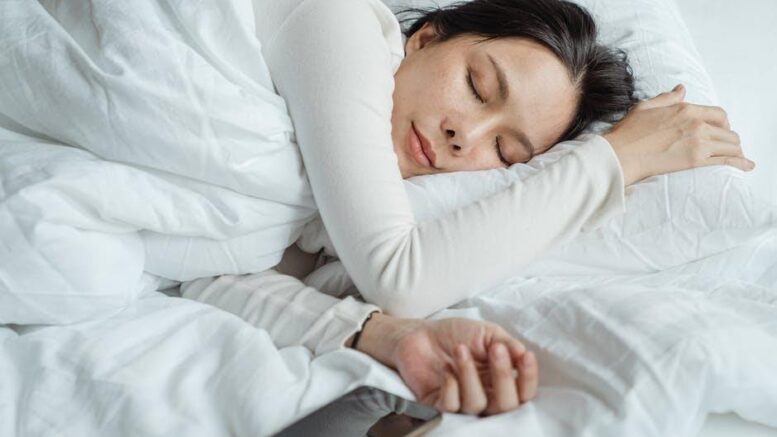Did you know that 11% of Americans report insufficient sleep every night? It’s no secret that good sleep is crucial to a healthy lifestyle but if you have trouble sleeping, it can be overwhelming to find a solution.
That’s where this guide comes in. Sleep deprivation can cause a myriad of disorders so it’s important to know the best way to sleep better. Here are seven tips to help you sleep better.
Ready to learn more? Let’s get started.
1. Have a Sleep Schedule
If you’re looking to sleep better, you’ll need to create a schedule. You’ll want to dedicate between seven to eight hours to sleep. Luckily, it is easier than ever to create a routine that will help you sleep soundly.
Set a time for bed and stick to it. Aim to go to bed and wake up at the same time every day. Although it might be difficult, limit the difference in your sleep schedule on weekends to no more than one hour.
Don’t use your smartphone an hour before bed. Instead, try to read or listen to calming music.
Having a schedule will help your body get accustomed to falling asleep early and waking up at a reasonable time. You’ll start to feel energized and motivated to take on the day.
2. Reduce Caffeine in the Evening
Over 90% of Americans consume caffeine. It’s a popular option to keep your mind sharp and there are several benefits to it. Even a small amount can enhance your energy and focus.
Unfortunately, you should avoid drinking caffeine later in the day. This is because caffeine stimulates your nervous system and can stop your body from relaxing. The last thing you want to do is feel jittery and energetic when you should be falling asleep.
Caffeine can stay in your blood for 6-8 hours so try not to drink any coffee after 4pm. If you’re not sure about giving up your favorite beverage, there’s always decaf.
3. Limit Daytime Naps
If you didn’t sleep too well, it can be tempting to take a long nap during the day. Although there are a number of benefits to a good nap, it can also make things worse. You’ll want to limit naps to 15 to 20 minutes in the early afternoon.
Naps interfere with your sleep schedule and can cause you to feel restless when it’s time for bed. With that said, if you work nights, you’ll want to nap late in the day to make up for any lost sleep.
4. Take a Supplement
Since poor sleeping habits are so common, it’s no secret that there are supplements to help people fall asleep quickly. One of the best options is melatonin supplements, which is a popular sleep aid that is used to treat insomnia.
It’s a healthy option that has no withdrawal effects. You’ll want to start with a low dose to assess your tolerance and then adjust as needed.
If you’re looking for more natural sleep remedies, you could try cannabis. There are several different options available so you’ll want to learn the difference between all of them. For example, CBG vs CBN, which is a better sleep aid?
Once you know all of the supplements you can use to help you sleep then you’ll be able to find what works best for your lifestyle.

5. Control Your Exposure to Light
Melatonin is a sleep aid but it’s also a naturally occurring hormone controlled by light exposure that helps regulate your sleep-wake cycle. When it’s dark, more melatonin is secreted. When it’s bright, your brain wants to stay awake.
That’s why it’s crucial that you know how exposure to light can influence your body’s production of melatonin.
For starters, you’ll want to expose yourself to bright sunlight in the morning and spend some time outside during the day. At night, it’s best to avoid bright screens within 1-2 hours of your bedtime and make sure that your room is dark.
6. Be Smart About Nutrition
It may seem irrelevant but your eating habits during the day play a role in how you sleep, especially before bedtime. That’s why you want to ensure that you are focusing on the right food. It’s your overall diet rather than specific foods that make the biggest difference to your quality of sleep.
Limit the amount of red meat you eat and incorporate a Mediterranean-type diet. Eating too much sugar can trigger wakefulness at night so be sure to avoid that as well caffeine.
Finally, reconsider having a large meal before bed. Do an early dinner without any alcohol.
Having a balanced diet will make your body feel light and healthy, the ideal circumstances for a good night’s sleep.
7. Exercise Regularly
Everyone knows that introducing exercise into your day-to-day can have a positive effect on your health. It’s also a science-backed way to improve your sleep.
When you exercise, it releases endorphins. These chemicals create a level of activity in the brain that keeps you awake but after a couple of hours, your brain will wind down and feel ready for sleep.
You’ll want to make sure that you don’t exercise too late in the day. Be up early and do an invigorating exercise. You’ll feel ready to sleep as it gets closer to bedtime.
The Best Way to Sleep Better
Sleeping well affects your physical and mental health. If you’re not getting enough hours, you’ll feel significantly less productive and lethargic. Despite this being common information, most Americans struggle with sleep at least once a week.
It may feel impossible to know the best way to sleep better but you have more control over it than you think. There are several small changes you can make to your daily routine that will help you sleep through the night and wake up feeling refreshed.
Looking for more articles like this? Be sure to check out the Diseases and Conditions section of our blog!
